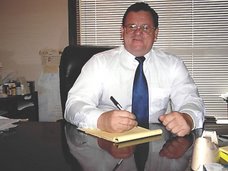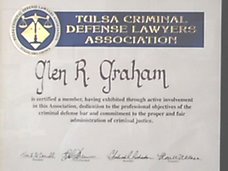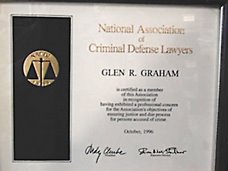http://www.innocenceproject.org/fix/What-can-I-do.php
Ten Things Anyone Can Do To Help Exonerate Innocent People and Prevent Wrongful Convictions
1. Get connected to stay informed and take actionJoin the Innocence Project's online community to receive regularupdates, action alerts, in-depth news and analysis, and otherinformation. Registration is free. Once you register, you can e-mailyour friends, family and colleagues to ask them to sign up, too.
2. Donate to the Innocence ProjectThe Innocence Project is a nonprofit organization that relies onfinancial support from individuals and foundations.
3. Build relationships with elected representativesCall or meet with your state and federal representatives well beforethe legislative session starts and discuss your concerns. By simplyintroducing yourself to your legislators and their staff before thesession starts and providing a brief overview of innocence-relatedpolicy concerns, you can establish useful relationships with themand help them see the value of supporting legislation that wouldprotect the innocent. When the session starts, they may reach out toyou or take your call because they know you're actively involved inthese issues. For more information and practical tips, see "How toTalk About Innocence-Related Issues with Elected Officials,Organizations, Media, and Others."
4. Connect with a local Innocence Network organizationThree dozen organizations around the country belong to the InnocenceNetwork, and many of them work on these issues at the state andlocal levels. You may be able to help with their policy reformefforts, their community outreach, or other aspects of their work –in a professional capacity or as a volunteer. To find a localInnocence Network contact, go to www.innocencenetwork.org.
5. Reach out to the mediaWhen a local or national media outlet runs a story about anexoneration or the causes of wrongful convictions, call or write tothe reporter to say you are pleased to see the coverage andinterested in seeing additional stories on these issues. Share yourperspective and thoughts about why wrongful convictions must bediscussed and addressed. Write letters to the editor in response toarticles or editorials so that the media – and policymakers who arein a position to help prevent wrongful convictions — know that thepublic is concerned about these issues. For more information andpractical tips, see "How to Talk About Innocence-Related Issues withElected Officials, Organizations, Media, and Others."
6. Become more knowledgeable about wrongful convictions – and spreadthe wordThere are scores of books, films, television specials and otherresources that can deepen people's understanding of the causes ofwrongful convictions, the need for reform, the challenges peopleface after exoneration and other issues. Spend some time learningmore about the issues, and then share books or films with yourfriends, coworkers or community members (some of them are greatgifts!). View a list of list of films and TV specials on the issuessurrounding wrongful convictions.
7. Engage allies in addressing wrongful convictionsEveryone is impacted by wrongful convictions, but some individualsand groups aren't yet involved in preventing injustice. Ask yourfriends, colleagues and community organizations to get involved whenpolicy reforms are being discussed; encourage them to join theInnocence Project's online community. Offer to speak about wrongfulconvictions at a local Rotary, Kiwanis, or similar civic groups'meeting. You can address the group yourself, or you can ask a localInnocence Network representative or professor to speak. During thespeech, encourage people to become more actively involved in theseissues.
8. Work with prisoners and their families in your communityMany exonerees and their families talk about how isolated andignored prisoners feel. Find a local group that works with prisonersand volunteer to get involved however you're needed – whether it'shelping in a prison organization's office or providing support toprisoners and their families. For links to organizations providing arange of services, go to http://prisonactivist.org/links/. Forinformation to share with prisoners (or their families) seeking tocontact the Innocence Project about a case, click here.
9. Learn about local procedures and help improve themMany of the causes of wrongful convictions are decided locally. Forexample, policies and procedures about conducting lineups andrecording interrogations are often set by city and county agencies.As a concerned community member, you have the right to know what thelocal practices are. Contact the city police, county sheriff and/orother local agencies to find out what they're currently doing andwhat the process is for evaluating and revising their policies. Iftheir procedures and policies are not adequate for preventingwrongful convictions, urge decision-makers to change them and reachout to Innocence Network groups to let them know what you'velearned. For more information and practical tips, see "How to LearnAbout Local Law Enforcement Procedures and Help Improve Them."
10. Host a local fundraising and educational eventYou, your friends or a group you belong to can organize an event toraise money for the Innocence Project and educate people aboutwrongful convictions. Some people hold small house parties for sixpeople, while others organize events for 100. Whatever you can dowill help spread the word and support our work.
Ten Things Anyone Can Do to Help Exonerate Innocent People
Subscribe to:
Post Comments (Atom)






No comments:
Post a Comment